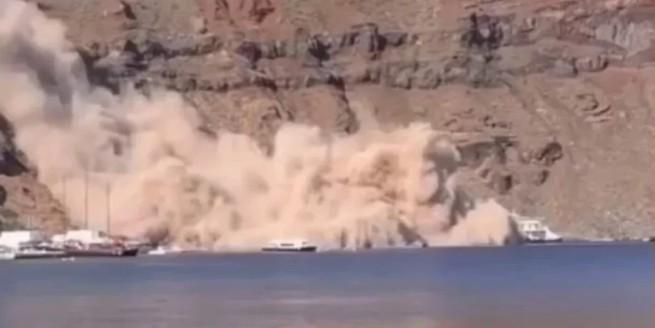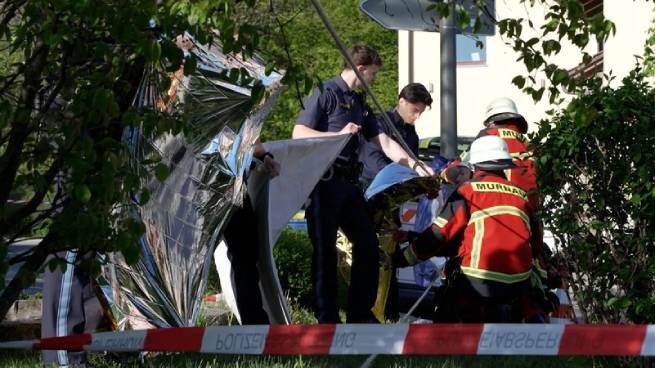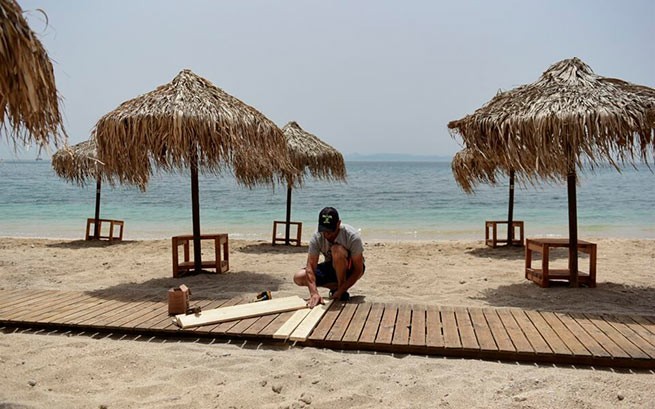In response to Lithuania’s ban on railway transit of certain goods to the Kaliningrad region, Russia promises “actions to protect its interests.” Is the Kremlin really threatening a NATO member state?
Vilnius does not rule out that “hybrid operations” may follow from Moscow. Symbolic solidarity was demonstrated a few days ago by a key ally as two US F-35s flew over the three Baltic capitals.
Last weekend, Lithuania imposed a ban on transit to Kaliningrad through its territory by rail and a number of goods that are listed in the fourth package of EU sanctions against Russia. Among them – ferrous metals, steel and products from them. In the coming weeks, a ban on the transportation of cement and alcohol will follow, from August – coal, and from December Russian oil will be banned.
In the Russian Federation, the decision of Vilnius caused an extremely sharp reaction, although it was known in advance. As well as the fact that Lithuania cannot refuse to comply with the decisions of the European Commission. However, the Kremlin ignores the explanation of the Lithuanian leadership. Virginia Umbrasiene, Lithuania’s charge d’affaires in Russia, was summoned to the Foreign Ministry and handed a demand for the immediate lifting of all restrictions. Otherwise, the Russian Foreign Ministry threatened, Moscow “reserves the right to take action to protect its interests.”
What’s this? Preparing for a possible war? Especially against the backdrop of the recent initiatives of Yevgeny Fedorov (on the abolition of the decision of the USSR State Council of 1991 to recognize the independence of Lithuania). Gintautas Mazeikis, a professor at Vytautas the Great University, believes that Moscow may well be preparing the ground for a declaration of war or a blockade of the Lithuanian port of Klaipeda. Lithuanian Defense Minister Arvydas Anusauskas holds the opposite opinion. He calls the Russian threats “made out of thin air” and notes: “Let’s not lose the ability to separate disinformation and propaganda from real opportunities.”
In diplomatic circles in Vilnius, one of the explanations for Moscow’s reaction is now popular: the Kremlin is putting pressure on Lithuania to involve the EU in transit negotiations. This supposedly solves three problems at once:
- confirm the propaganda thesis about the “non-independence” of Lithuania and other Baltic countries;
- demonstrate that the EU is “forced” to talk to the Kremlin;
- divert attention from Russia’s invasion of Ukraine.
One of the Western diplomats accredited in Lithuania says:
“If yes, then the matter will most likely be limited to symbolic actions, such as the withdrawal of recognition of independence and, possibly, cyber attacks. Putin cannot but understand that any attempt to exert military pressure on Vilnius will cause a tough reaction from NATO. And to confront both the alliance and with Ukraine, he simply does not have the resources.”
However, the Lithuanian military and intelligence agencies are alarmed by the developing situation. Government circles explain:
“In Russia’s hybrid war against NATO, the main task is not to capture more territory, but to create a conflict situation. One in which the allies will look weak and divided.”
No matter how the conflict over the transit ban and sanctions ends, Vilnius is confident that in the future the Kremlin will find new reasons to once again test the strength of unity EU and NATO.
The US said Tuesday, after Russia began threatening the Baltic nation over transit restrictions, that it firmly supports Lithuania and its NATO commitment to protecting member states. State Department spokesman Ned Price said, quoted AFP:
“We support our NATO allies and we support Lithuania. In particular, our commitment to NATO’s Article 5 – that an attack on one will mean an attack on all – is an unshakable commitment on the part of the United States.”







More Stories
Today the world remembers the accident at the Chernobyl nuclear power plant
A trial has begun in the case of a fatal accident involving Dora Bakoyanni's car.
Poll: which European countries are ready to defend their homeland to the last